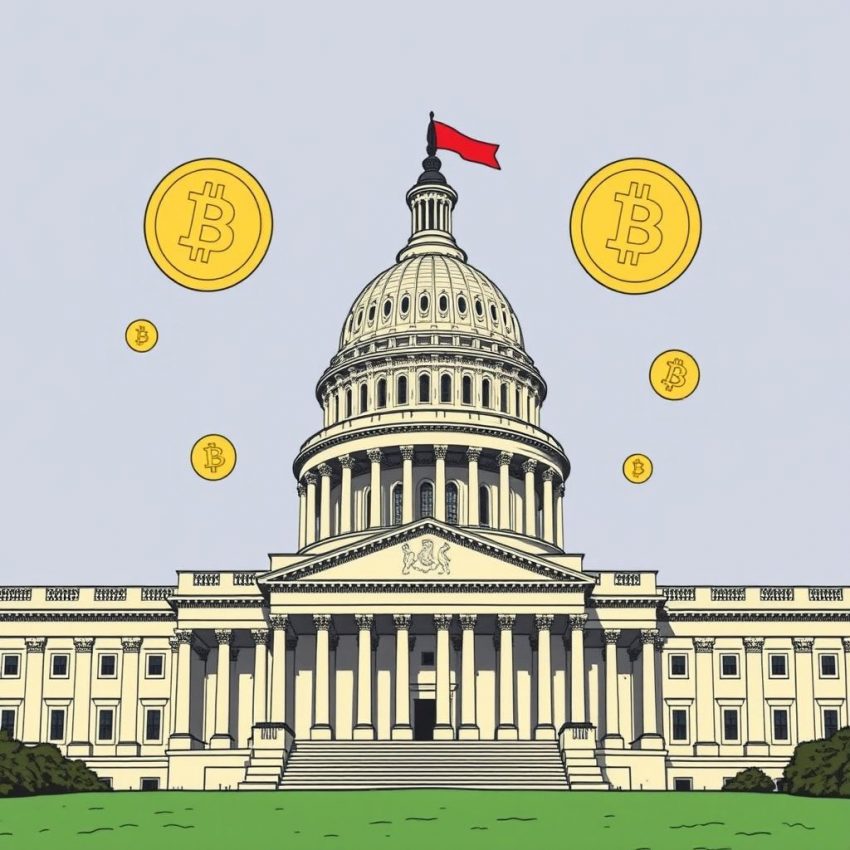Crypto Chaos on Capitol Hill: Freedom Caucus Throws Wrench in House's Crypto Plans
The U.S. House of Representatives experienced a setback this week in its efforts to advance crucial cryptocurrency legislation. Procedural votes intended to pave the way for consideration of several crypto bills encountered unexpected resistance from the House Freedom Caucus, highlighting the deep divisions within the Republican party and the challenges of navigating the complex and rapidly evolving crypto landscape.
The intended path forward involved multiple bills addressing different aspects of digital asset regulation. While specifics remain somewhat shrouded in the political maneuvering, the core issues likely involved clarifying the regulatory framework for cryptocurrencies, potentially including provisions regarding stablecoins, digital asset security, and the role of the Securities and Exchange Commission (SEC). These are areas where consensus has proven elusive, even within the broader cryptocurrency community.
The Freedom Caucus's objection, however, wasn't necessarily rooted in outright opposition to crypto regulation itself. Instead, their concerns likely stem from a variety of factors, including:
- Overreach of government regulation: The Freedom Caucus, known for its staunch libertarian and limited-government stance, may see the proposed bills as an excessive intrusion into the free market. They may believe that heavy-handed regulation stifles innovation and hinders the growth of the crypto sector.
- Concerns about specific provisions: The details of the bills themselves may have contained provisions that clashed with the Freedom Caucus's ideology, potentially related to consumer protection, enforcement mechanisms, or specific technological aspects of cryptocurrency.
- Political maneuvering and leverage: The Freedom Caucus's objection might also be a strategic move to extract concessions on other legislative matters. By holding up the crypto bills, they potentially gain leverage in negotiations over unrelated legislation.
The procedural hiccup underscores the considerable hurdles facing crypto legislation in Congress. The lack of a unified approach within the Republican party – a crucial factor given the current House majority – severely complicates the process. Democratic support for some elements of the proposed bills might exist, but achieving bipartisan consensus remains a significant challenge.
What happens next?
The immediate future of the crypto bills remains uncertain. Negotiations are likely to intensify, with attempts to address the Freedom Caucus's concerns and potentially amend the legislation. The outcome will depend heavily on the willingness of all parties to compromise and find common ground. Failure to do so could significantly delay, or even derail, the House's attempts to create a clear and consistent regulatory framework for the cryptocurrency industry.
This episode serves as a potent reminder that the path to effective crypto regulation is far from smooth. The clash between differing ideologies and the inherent complexities of the digital asset space necessitate careful consideration and extensive dialogue. The coming weeks will be critical in determining whether Congress can overcome these challenges and deliver meaningful legislation. Stay tuned for updates as this story unfolds.
Don’t miss out on this exclusive deal, specially curated for our readers! Unlock the power of advanced crypto trading with Bitfinex
This page includes affiliate links. If you make a qualifying purchase through these links, I may earn a commission at no extra cost to you. For more details, please refer to the disclaimer page. disclaimer page.

